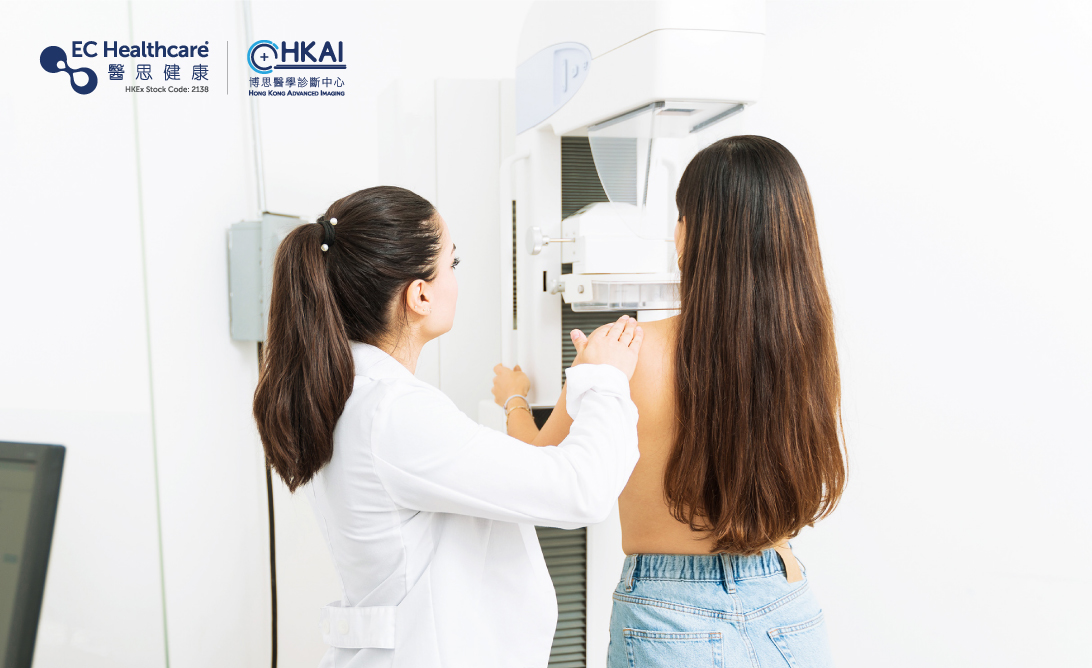Revealing Breast Cancer with High-Resolution MRI Screening!


When it comes to breast examinations, many women's initial impression may be the painful mammography procedure (X-ray scan of the breast). Despite the widespread promotion of regular breast examinations for adult women, there are still many who refuse these screenings due to the fear of discomfort during the examination. In reality, not all breast examination methods are painful! Breast Magnetic Resonance Imaging (MRI) is a painless imaging technique that accurately detects breast cancer lesions as small as 1 to 2 mm. It helps initiate treatment at an early stage, significantly reducing breast cancer mortality rates!
Early Detection Key to Breast Cancer Treatment
Breast cancer is the most common cancer among women in Hong Kong and ranks as the third leading cause of cancer-related deaths. Detecting breast cancer at an early stage allows for prompt initiation of treatment, making it more effective. Doctors can provide a wider range of treatment options, such as less invasive procedures like lumpectomy, which preserves more breast tissue and protects the overall well-being of women both physically and emotionally. Additionally, early detection of breast cancer reduces the risk of tumor progression or spread, thereby avoiding increased treatment complexity. Research suggests that regular breast examinations can decrease the incidence of advanced-stage breast cancer by 30% and reduce breast cancer-related mortality by 41%. Furthermore, when breast cancer is detected early, the five-year survival rate exceeds 90%!
| Breast Cancer Stage | Cancer Status | Survival Rate |
| Stage 0 | Carcinoma in situ, cancer cells confined to ducts | Nearly 100% |
| Stage 1 | Tumor ≤2 cm, no metastasis | 95% |
| Stage 2 | Tumor >2 cm but ≤5 cm, 1-3 lymph node metastases | 85% |
| Stage 3 | Tumor >5 cm, ≥4 lymph node involvement, metastasis present | 55% |
| Stage 4 | Cancer cells metastasized to other organs | 15% |
Breast MRI: A More Effective Method for Detecting Small Breast Cancer Lesions
While X-ray scan of the breast and ultrasound examinations have high accuracy rates, they may miss approximately 15% of breast cancer lesions, particularly in East Asian women with denser breast tissue that is more challenging to diagnose.
Breast MRI is a highly sensitive and high-resolution imaging technique that utilizes magnetic fields and harmless radio waves to generate detailed breast images. With its exceptional precision, it boasts a remarkable breast cancer detection rate of up to 90%. The American Cancer Society has recognized breast MRI as a more effective method for detecting multiple breast cancer lesions. In addition to detecting breast cancer lesions as small as 1 to 2 mm, breast MRI clearly visualizes tumor size, location, characteristics, blood supply, and differentiation between benign and malignant conditions, as well as other breast abnormalities. This advanced imaging technique helps reduce unnecessary surgical procedures. For high-risk individuals, those with a family history of breast cancer, previous breast surgeries, or higher breast tissue density, breast MRI serves as an essential diagnostic tool, enabling doctors to provide more tailored treatment recommendations.




